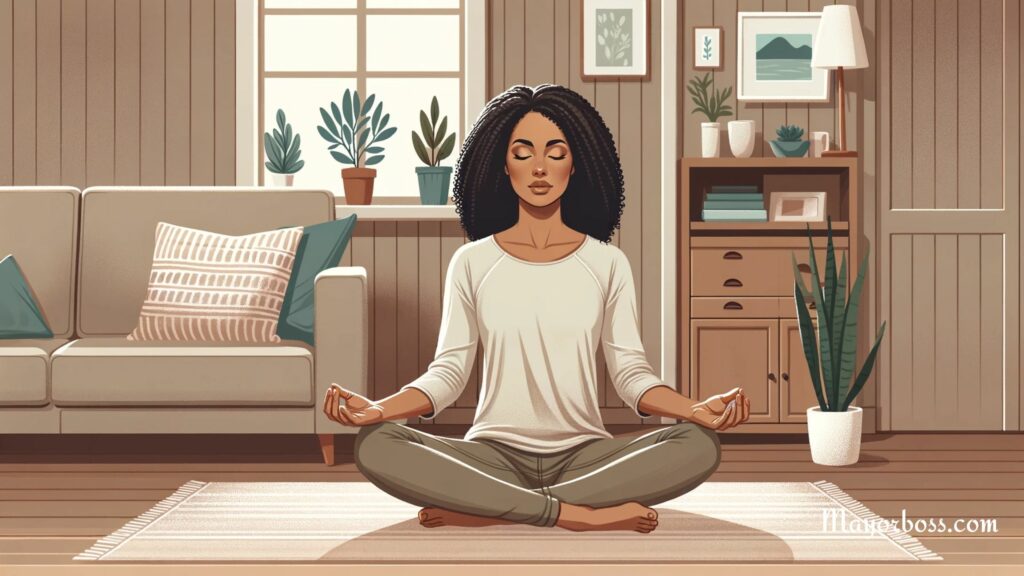Stress Management: 20 Simple Ways to Relieve Stress and Anxiety
Stress and anxiety are almost unavoidable companions nowadays. From work deadlines and financial worries to family obligations and relationship issues, it’s easy to feel overwhelmed and out of control. And while a certain amount of stress can be motivating, chronic stress can harm our physical and mental health.
Fortunately, there are numerous helpful approaches to managing stress and anxiety. These approaches can help you regain control, enhance your ability to cope with complex events that occur in your life and live a happier, healthier life.
Understanding Stress and Anxiety
Before diving into specific stress-management techniques, it’s essential to understand the difference between stress and anxiety. While both are related, they have distinct characteristics:
- Stress: A natural response to physical or emotional threats. It can manifest as physiological changes, such as increased heart rate and blood pressure, and psychological changes, such as worry and tension.
- Anxiety: A persistent feeling of worry and fear, often accompanied by physical symptoms like insomnia, fatigue, and muscle tension. Anxiety can be triggered by specific situations or be chronic, with no apparent cause.
This Are The Simple Ways to Relieve Stress and Anxiety

Stress management approaches include:
1) Breathing Exercises
When you’re stressed, your breathing can become shallow. But, if you take deep, controlled breaths, you can calm your nervous system. Try this: breathe in for four counts, hold for seven counts, and exhale for eight counts. This method, known as the 4-7-8 technique, is surprisingly effective.
2) Physical Activity
Exercise isn’t just for keeping fit – it’s a fantastic stress-buster. When you exercise, your body releases endorphins, which are natural mood lifters. You don’t need to run a marathon; a brisk walk, a quick jog, or a yoga session can do wonders.
3) Get Enough Sleep
Lack of sleep can heighten stress levels. Aim for 7-9 hours of sleep per night. Create a sleep-friendly environment: dark, cool, and quiet. Also, try to keep a consistent sleep schedule.
4) Practice Mindfulness
Mindfulness involves being present in the moment. You can practice it through meditation or simply by paying close attention to your everyday activities. This focus can reduce stress and enhance your enjoyment of life.

5) Journaling
Writing down your thoughts and feelings can provide a great outlet for stress. It’s like having a conversation with yourself, helping you process your emotions and gain clarity.
6) Listen to Music
Music can be a powerful tool to relax and reduce anxiety. Listening to music can provide an instant mood boost, whether it’s classical, jazz, afrobeat, hip hop, or your favorite pop songs.
7) Laughter
Laughter, indeed, can be the best medicine. It releases endorphins and decreases stress hormones. Watch a funny movie, hang out with friends who make you laugh, or find a comedic podcast.
8) Healthy Eating
Eating nutritious foods provides your body with the essential nutrients it needs to cope with stress. Limit processed foods, sugary drinks, and excessive caffeine intake, and focus on consuming fruits, vegetables, whole grains, and lean protein.
Limit alcohol. While alcohol and caffeine may offer temporary relaxation, they can disrupt sleep and worsen anxiety in the long run.
9) Time Management
Organize your time and responsibilities. Prioritize tasks and don’t overcommit. Breaking down your tasks into smaller, manageable steps can help reduce overwhelm.
10) Connect with Loved Ones
Talking to friends or family members can be a great stress reliever. They don’t have to provide solutions – just having someone listen can be immensely comforting.
11) Take a Break
Sometimes, the best thing to do is step away for a moment. Take a short break from what you’re doing. Even a few minutes can help clear your mind.
12) Practice Gratitude
Focusing on what you’re thankful for can shift your mindset from stress to positivity. Consider keeping a gratitude journal or simply reflecting on a few positive things each day.
13) Aromatherapy
Certain scents, like lavender or eucalyptus, can be soothing. Try using essential oils, scented candles, or incense to create a calming atmosphere.

14) Stay Hydrated
Dehydration can cause or worsen anxiety. Make sure you’re drinking enough water throughout the day – it’s a small action that can make a big difference.
15) Limit Screen Time
Excessive time in front of screens can increase stress. Try to take regular breaks from your computer, phone, or TV, especially before bedtime.
16) Creative Outlets
Engage in creative activities like painting, drawing, crafting, or writing. Creative expression can be a wonderful way to channel stress and anxiety into something beautiful.
17) Nature Therapy
Immersing yourself in nature has a remarkable calming effect. Take a walk in the park, listen to the sounds of the ocean, simply sit under a tree, or simply sit outside and appreciate the beauty of the natural world.
18) Practice Saying No
It’s perfectly okay to say no to requests that add to your stress and overwhelm. Prioritize your well-being and learn to decline requests that drain your energy.
19) Visualization
Visualize a peaceful scene or a happy memory. This mental escape can offer a brief respite from stress and help you relax.
20) Reading the Bible
For many, the Bible offers comfort and guidance. Reading passages can be a source of strength and peace, providing a spiritual approach to dealing with stress and anxiety. Whether it’s a particular verse, story, or psalm, the words can bring solace and perspective.

Seek Professional Help
If stress and anxiety are overwhelming or persistent, it might be time to talk to a professional. Therapists can provide strategies and support tailored to your needs.
All in all, managing stress and anxiety is not about making huge life changes overnight. Instead, it’s about incorporating small, manageable habits into your daily routine. Each of these steps can help you regain control, bringing more peace and joy into your life. Remember, you’re not alone in this, and with these tips, you can start to push stress and anxiety out the door.






